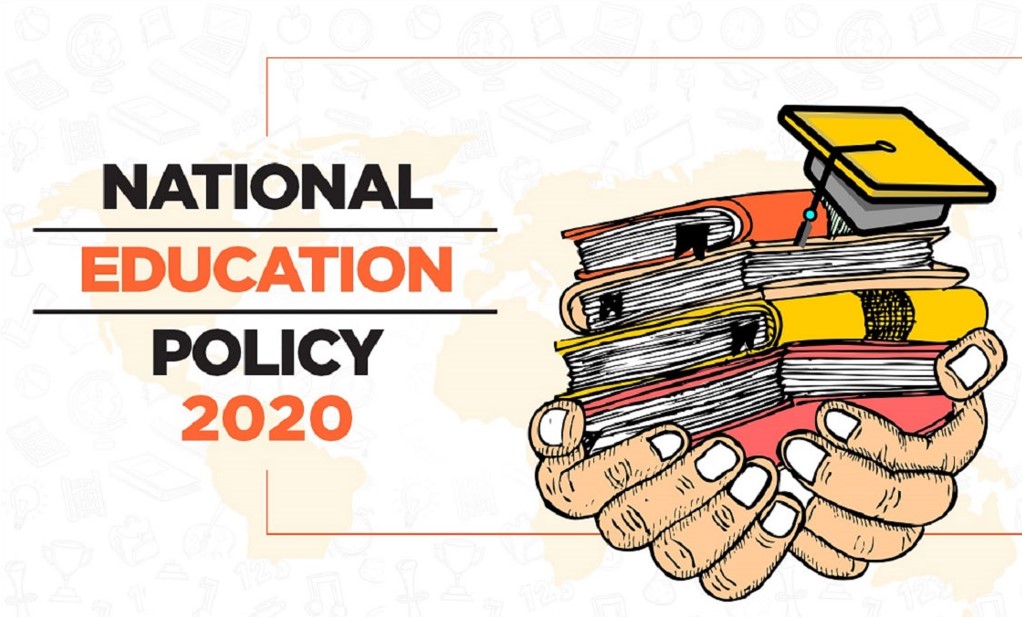Education is not merely about teaching and learning within the four walls of a room. Education is also about imparting the right values and making good human beings for a better tomorrow. The focus of education should not be limited to making a person knowledgeable, experienced, and skilled but also developing sound attitude, empathy, compassion and fortitude. Education should aim at making an individual civilized, refined, cultured and become better human being. This is not only for the good of the individual but also of the community, society and the world.
For this purpose, we need value-based education. The National Education Policy (NEP) 2020 also emphasizes the need to integrate value-based education into a student-centric curriculum. Value-based education is an approach to teaching that works with values. It creates a strong learning environment that enhances academic achievement and develops students’ social and relationship skills that last throughout their lives. Such positive and strong learning environment liberate teachers and students from the stress of confrontational relationships and frees up substantial teaching and learning time. It also provides social capacity to students, equipping them with social and relationship skills, intelligence and attitudes to succeed at school and their future careers.
Value-based education should be imparted from a young age. It can be started in the family since family is the first institution for a child to learn about values such as sharing, caring, kindness and love. Schools and higher learning institutions refine what a person has learned from his/her family. Values such as discipline, punctuality, gratitude, common good and overall character- building of a person is imparted in educational institutions.
Scientific research has proven that value-based education creates conducive environment that enhances academic learning and achievement, while developing social skills and relationship-building capabilities. Children who opt positive values at an early age are more confident, competent and intelligent along with being effective learners and good citizens.
Integrating learning modules that derive from real life situations are important to instill practical values such as loyalty, kindness, integrity, compassion and selflessness in students. When they are able to link their learning experience to the real-world they get clearer sense of purpose and the teachings remain with them.
Whether one is teaching mathematics, science or social sciences, values can be inculcated while talking about themes within each subject. History can help students learn about equality, liberty, patriotism, secularism, and many other values which were championed by various civilisations and people’s movements. Geography can teach how to respect other cultures and ethnicities. The sciences can be a medium to instill scientific temper, objectivity, rationality, and compassion towards nature.
In today’s era of competition, we observe laxity in moral values. It has made man rich in materialistic sense but deteriorated in ethical sense. People crave for money, power, and fame. They are ready to jeopardize the interest of other people in pursuit of their selfish gains. Corruption is rampant in almost every sphere of public life. We come across many evils in the society. Children due to their exposure to mass media are turning juvenile delinquents. Due to lack of values they adhere to whatever is shown in the TV. Parents are busy pursuing their careers and children are taken care by day-care centres.
In the present scenario, we need a change in the way we impart education in order to have a morally sound and peaceful society. Incorporating value-based education in school curriculum can be that catalyst of change.
The present education system deals with imparting mere knowledge of different subjects but fails to make individuals understand the self. We have the knowledge of the external world but we don’t have the knowledge of our own self. Today’s education system is designed in such way that a human being will achieve materialistic success and superficial achievements but he will lack virtues like kindness, honesty, compassion, peace, love, non-violence, etc.
Why do we need value-based education? Values are standards considered important in life. They come from within (love, kindness, compassion, mercy, sympathy, empathy, etc.) and also by practicing (punctuality, discipline, obedience, behaviour, conduct, character, etc.). They are the foundation of human existence. Without values, society cannot sustain.
Teachers must play an important role in imparting value-based education. The learned teachers are like signposts in the road to tell you where the road leads to. Teachers should help the students achieve their full potential and bring out the best in them. Teachers should be able to lead students towards a better tomorrow. Most important of all, he/she must be loving and sincere. It is in schools and colleges that good value system can be nurtured. A teacher’s purpose is not to create students in his own image, but to develop students who can create their own image. Teachers make maximum impact on the personality of a student in the formative years. Students imbibe virtues and vices knowingly and unknowingly from the teachers since the later becomes the role model of the former.
Should education be free? Education is a fundamental right. Children between 6-14 years of age are guaranteed the right to elementary education in India. This is with respect to government schools. However, many government schools suffer from lack of infrastructure, manpower, and other things to provide quality education to children in comparison to private schools. As such, the high cost of education remains a significant barrier to access to quality education for many. We should make sure that the quality of education is not costly and confined to elites but is accessible and available to all. Quality education is a basic human right that can promote social equality and drive economic growth. When education is affordable, it can help break down barriers and create opportunities for all individuals to achieve their full potential.
We need to educate individuals to face the outer world with right attitude and values. Having a right attitude will give a positive direction to the individuals to mould their future positively and assist them to know the purpose of their life. Imparting the right values will make a person responsible citizen, create an environment of peaceful co-existence, and develop a feeling of common good. Indeed, value-based education is the need of the hour to positively change the world for a better tomorrow.
Values are foundations and stars of our lives. They nurture and guide us. They are our ways of being with the world in which we treat each other with love, respect and dignity. Values have both social and individual dimension. Cultivation of good values in social institution and individual lives make it a good society. In the present world, sometimes we give too much attention to materialistic wants and leave out social and individual values. We are too much focussed on earthly materials and tend to forget the core value of education and human values. Perhaps it leads to unethical practices and corruption.
There is a crisis of values today due to human greed. We need to inculcate the good values practised by our forefathers in the early civilisations. Humans are humans because of each other. Each one lives for the other. We are social being and we cannot live in isolation. We depend on each other for our livelihood. We must develop the sense of “live and let live”. Human values make human life and relationship truly human and meaningful.
The absence of human relationship and accountability weakens trust in public institutions in general and financial institutions in particular. Values create a sense of mutual belongingness, provide vision and purpose, and ensure efficiency, creativity and good outcome. Values must be brought to every sphere of social life. The values must be inculcated in the family, society, educational institutions, financial institutions, public work places, offices, etc.
Today the society talks of corruption, inefficiency, lack of accountability, transparency, red-tapism, nepotism, favouritism, unethical behaviour, moral laxity, etc. These are the results of lack of true value-based education. If we understand the basic values of what is right and wrong at the young age, the society at large will live in harmony and peace, and much of the evils we mentioned above will disappear.
In order to inculcate value-based education to students, it must be introduced in schools, colleges and universities as a compulsory subject. Government servants and public leaders also need to be educated on the basic values of life to enable them to judge what is right and wrong. It should be the responsibility of every teacher and sensible citizen to encourage value-based education for a better tomorrow. Dr. A.P.J. Abdul Kalam has rightly said “If you are a teacher in whatever capacity, you have a very special role to play because more than anybody else it is you who are shaping the future generation. A teacher has a higher responsibility as compared to their profession as students look upon the teachers as an embodiment of perfection…” Further, the government and all stakeholders must take necessary steps to include value-based education as a compulsory subject right from school education at the earliest.

The writer is former Director, HRD, North Eastern Council, and former Joint Registrar, Jawaharlal Nehru University, New Delhi.











